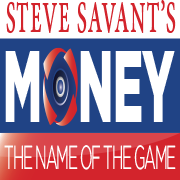 Mesa 11/2/2017 11:00:00 AM
Mesa 11/2/2017 11:00:00 AM
News / Finance
Gaining Control of Your Finances Through Budgeting
Budgeting is a Form of Accountability, a Discipline and a Recording of Choices

To take care of your debt, and build a foundation of wealth creation you have to take control of your immediate financial situation. This starts with a budget. However, I want to dig a little bit deeper into some ideas for increasing your cash flow. One of the easiest ways to give yourself a raise is to take a look at your tax refund. If you are getting a few thousand dollars back every year you are giving the government a zero interest loan. That money could be put to much better use in your financial plan. Talk to your human resources department to learn more about adjusting your deductions. Also, take a look at your current expenses. Are there ways you can cut back on what you are spending for your cell phone, cable television, even your utilities? Every dollar you save is a dollar earned toward building your financial future. Go through your expenses, call your utility providers, and work with them to identify ways that you can save on their services. You might be surprised at how much cash you are able to free up!
Now you become the master of your own destiny. It’s time to take a hard look at your income versus your expenses. In order to meet your goals you are going to need as much money as you can raise. You may have to identify additional strategies to increase your income. How? There are plenty of ways, but you have to determine which is the best for you. For instance, can you generate revenue from a hobby? Are you an expert who can start a part-time sales position? Are you an exceptional educator? You might make a great tutor. Or, you might make investments in yourself that will help you command more income in the future.
Creating your Spending Plan, examining your income and expenses will go a long way in helping you establish that emergency fund I mentioned earlier. I don’t know about you, but I believe in Murphy’s Law. “Whatever can go wrong, will go wrong.” Therefore, you have to prepare for the unexpected. “How do I plan for the unexpected? “ Well, the easiest thing is to have cash on hand. Your emergency fund should consist of savings equivalent to between 3 to 6 months of your expenses. Many of us live by the safety myth of, “Oh, that will never happen to me.” Well, surprise! – emergencies can happen to anyone at any time. People get sick, deal with unexpected expenses, and face the very real reality of unemployment. To weather these storms you’ll need savings to get you through. As these emergencies can happen at any time, you’ll want to keep these funds in an account you can access quickly should the need arise. There are a number of savings accounts that offer you a higher interest rate than your local bank may offer, so conduct an Internet search for high yield savings account. Having an emergency fund that covers insurance deductibles and unforeseen repairs is a cornerstone of financial health and it may help you sleep better at night. Contributions to this press release were provided by the Society for Financial Awareness.
